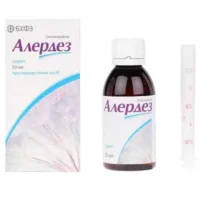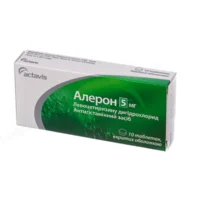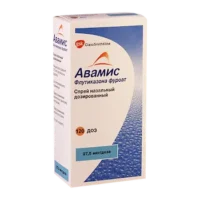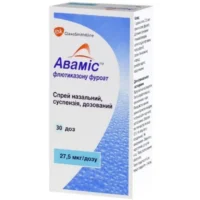Description
L-cet (levocetirizine dihydrochloride) Coated Tablets 5 mg. №30
Composition
Each coated tablet contains 5 mg of levocetirizine dihydrochloride.
Mechanism of Action
Levocetirizine is a potent and selective antagonist of the histamine H1 receptor, inhibiting the release of inflammatory mediators. This mechanism helps in alleviating symptoms associated with allergic conditions.
Pharmacological Properties
Levocetirizine dihydrochloride exerts its effects by blocking the action of histamine, thereby reducing the allergic response in the body. It has a high affinity for H1 receptors and demonstrates rapid onset of action.
Indications for Use
L-cet tablets are indicated for the relief of symptoms associated with allergic rhinitis and chronic idiopathic urticaria in adults and children over 6 years old.
Contraindications
Avoid using L-cet tablets if you have a known hypersensitivity to levocetirizine dihydrochloride or any other components of the formulation.
Side Effects
- Common side effects may include drowsiness, headache, and dry mouth.
- Less common side effects may include nausea, fatigue, and dizziness.
- Serious side effects are rare but may include allergic reactions or severe skin reactions.
Usage Instructions
The recommended dosage for adults and children over 6 years old is one tablet daily. Swallow the tablet whole with water, with or without food.
Benefits Compared to Analogues
Levocetirizine has demonstrated superior efficacy in managing allergic conditions with a lower incidence of sedation compared to other antihistamines. Its controlled release formulation ensures long-lasting relief from allergy symptoms.
Suitable Patient Groups
L-cet tablets are suitable for adults and children over 6 years old. It is well-tolerated and can be used in elderly patients as well.
Storage and Shelf Life
Store L-cet tablets in a cool, dry place away from direct sunlight. Check the packaging for the expiry date and do not use the tablets beyond that date.
Packaging Description
L-cet tablets are available in a pack containing 30 coated tablets. The packaging is designed to ensure the integrity and stability of the product.
Clinical Evidence and Proven Effectiveness
Levocetirizine has been extensively studied in clinical trials, demonstrating its efficacy in reducing symptoms such as sneezing, itching, and nasal congestion in patients with allergic rhinitis. Clinical studies have consistently shown the effectiveness and safety of levocetirizine in managing allergic conditions.





